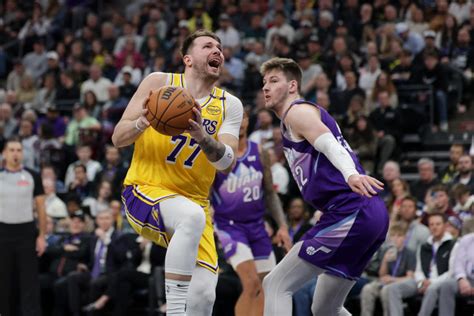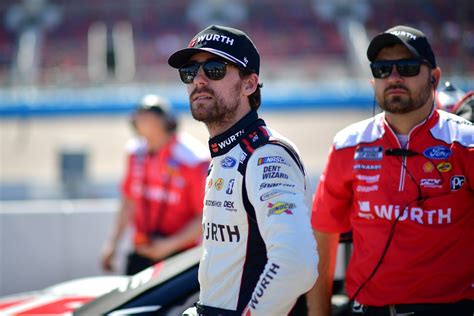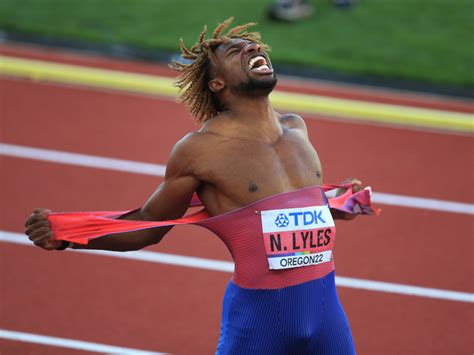
Luka Dončić could face a $63 million reduction in his potential future contract earnings with the Los Angeles Lakers due to the team’s projected losses exceeding $100 million, stemming from the ongoing bankruptcy proceedings of Diamond Sports Group (DSG), the parent company of Bally Sports. This financial predicament impacts not just the Lakers but also other NBA teams with broadcast deals involving Bally Sports.
The potential pay cut for Dončić, ironically a Dallas Mavericks superstar, arises due to the NBA’s collective bargaining agreement (CBA) rules regarding designated player extensions and team financial health. If a team experiences significant financial losses, it can impact their ability to offer maximum contract extensions. The prediction is made by veteran NBA reporter Marc Stein, who highlights the complexity of the situation and its potential ripple effects across the league.
The financial turmoil stems from Diamond Sports Group’s bankruptcy, which has created uncertainty regarding broadcast rights and revenue streams for numerous NBA teams. The Lakers, in particular, are heavily affected due to their broadcast partnership with Bally Sports. The financial shortfall suffered by the Lakers could prevent them from offering the maximum possible contract to a player like Dončić should he become available in the future and express interest in joining the team.
Diamond Sports Group’s Bankruptcy and Its Impact
Diamond Sports Group, a major player in regional sports broadcasting, filed for bankruptcy in March 2023. DSG’s financial woes are largely attributed to the cord-cutting trend, where viewers are increasingly abandoning traditional cable subscriptions in favor of streaming services. This shift has significantly reduced DSG’s revenue, making it difficult for the company to meet its financial obligations, including payments to sports teams for broadcasting rights.
The bankruptcy has led to considerable uncertainty and financial strain for the teams that rely on DSG for a substantial portion of their revenue. These teams face the possibility of reduced broadcast revenue, which can affect their ability to pay player salaries and invest in other areas of their operations. The Lakers, being one of the NBA’s most valuable franchises, are feeling the pinch despite their overall financial strength.
“The financial ramifications of Diamond Sports Group’s bankruptcy are now starting to become clearer,” Stein wrote. “And the Lakers, according to my sources, are bracing for a shortfall that could exceed $100 million.”
This shortfall directly affects the Lakers’ future financial flexibility and their ability to offer lucrative contracts. The NBA’s CBA includes provisions that allow teams to offer “designated player” extensions, which can exceed the standard maximum salary. However, these extensions are subject to certain financial criteria, including the team’s overall financial health. If a team is experiencing significant financial losses, it may be restricted from offering these maximum extensions.
Luka Dončić and the Designated Player Extension
Luka Dončić is currently under contract with the Dallas Mavericks, but the hypothetical scenario of him potentially joining the Lakers is based on the possibility that he could become a free agent in the future and express interest in playing for the team. As one of the league’s top players, Dončić would be eligible for a designated player extension if he were to become a free agent.
A designated player extension allows a team to offer a player a contract that exceeds the standard maximum salary, subject to certain conditions. These extensions are designed to help teams retain their star players and prevent them from leaving for other teams. However, as mentioned earlier, a team’s ability to offer a designated player extension is contingent on its financial health.
In the Lakers’ case, the projected $100 million+ loss due to DSG’s bankruptcy could prevent them from offering Dončić, or any other eligible player, the maximum possible contract extension. This is a significant concern for the Lakers, as it could limit their ability to attract and retain top talent in the future.
NBA Collective Bargaining Agreement (CBA) Implications
The NBA’s CBA is a complex document that governs the relationship between the league, its teams, and the players’ union. The CBA includes provisions that address various aspects of the league, including player salaries, contract extensions, and team financial health.
The CBA includes rules that allow teams to exceed the salary cap under certain circumstances, such as when re-signing their own players or using exceptions. However, these exceptions are subject to limitations, and teams that exceed the salary cap often face luxury tax penalties.
The DSG bankruptcy and its impact on team revenue are raising concerns about the long-term financial stability of the NBA. The league and the players’ union may need to address these issues in future CBA negotiations to ensure that teams are able to remain competitive and that players are fairly compensated.
Lakers’ Options and Potential Strategies
Faced with the prospect of a significant financial shortfall, the Lakers may need to explore various options to mitigate the impact. These options could include:
-
Cost-cutting measures: The Lakers could look to reduce expenses in other areas of their operations to offset the loss of broadcast revenue. This could involve cutting back on staffing, travel expenses, or other discretionary spending.
-
Revenue generation: The Lakers could explore new ways to generate revenue, such as increasing ticket prices, selling more merchandise, or securing new sponsorship deals.
-
Strategic player acquisitions: The Lakers may need to be more strategic in their player acquisitions, focusing on players who provide value at a lower cost. This could involve targeting younger players with potential or experienced veterans who are willing to accept smaller contracts.
-
Negotiating with DSG: The Lakers could attempt to negotiate a revised broadcast agreement with DSG to mitigate the financial impact of the bankruptcy. However, this may be difficult, as DSG is currently in a weak negotiating position.
The Lakers’ ability to navigate this financial challenge will depend on their ability to adapt to the changing landscape of sports broadcasting and to make smart decisions about player acquisitions and financial management.
Wider NBA Implications and the Future of Broadcasting
The situation with the Lakers and Diamond Sports Group is not an isolated incident. Several other NBA teams also have broadcast deals with Bally Sports, and they are all facing similar financial challenges.
The broader implications of DSG’s bankruptcy extend beyond the NBA. Other sports leagues, including MLB and the NHL, are also affected by the financial woes of regional sports networks.
The future of sports broadcasting is uncertain, but it is clear that the traditional cable model is under pressure. Streaming services are becoming increasingly popular, and many consumers are choosing to cut the cord and watch sports online.
Sports leagues and teams will need to adapt to this changing landscape by exploring new ways to distribute their content and generate revenue. This could involve launching their own streaming services, partnering with existing streaming platforms, or experimenting with new business models.
The financial challenges facing the Lakers and other NBA teams are a reminder of the importance of financial stability and the need to adapt to the changing landscape of the sports industry.
The Lakers’ Perspective
While the potential $63 million pay cut for a hypothetical Luka Dončić acquisition grabs headlines, the Lakers organization is focused on managing the immediate financial impact and planning for the future. According to sources within the organization, the Lakers are actively exploring various strategies to mitigate the financial shortfall resulting from the DSG bankruptcy.
“We are aware of the situation and are taking proactive steps to address it,” said a Lakers spokesperson, speaking on the condition of anonymity. “We are committed to maintaining our competitiveness and providing our fans with the best possible experience.”
The Lakers are reportedly in discussions with the NBA and other teams to explore potential solutions to the broadcasting revenue challenges. They are also evaluating their internal operations to identify areas where they can reduce costs without compromising the quality of their product.
Dončić’s Current Situation
It’s crucial to remember that Luka Dončić is currently under a long-term contract with the Dallas Mavericks and has not expressed any desire to leave the team. The scenario presented in the article is purely hypothetical and based on the possibility that he could become a free agent in the future.
Dončić is one of the league’s brightest stars and is considered a cornerstone player for the Mavericks. He has led the team to the playoffs multiple times and is widely regarded as one of the most skilled and exciting players in the NBA.
The Mavericks are committed to building a championship-contending team around Dončić, and they are likely to offer him a maximum contract extension when he becomes eligible. Whether he would ever seriously consider a move to the Lakers is purely speculative at this point.
Expert Opinions and Analysis
Several NBA experts have weighed in on the potential impact of DSG’s bankruptcy on the league and its teams.
“This is a significant issue that could have long-term consequences for the NBA,” said ESPN analyst Adrian Wojnarowski. “The league and the teams need to work together to find solutions to address the financial challenges posed by the changing landscape of sports broadcasting.”
“The Lakers are a strong franchise, but they are not immune to the financial pressures facing the NBA,” said NBA insider Shams Charania. “They will need to be creative and strategic in their approach to managing this situation.”
Conclusion
The projected $63 million pay cut for a hypothetical Luka Dončić acquisition by the Lakers highlights the significant financial challenges facing the team due to the Diamond Sports Group’s bankruptcy. While Dončić’s situation remains speculative, the underlying issue of dwindling broadcast revenues is very real and could affect numerous NBA teams in the years to come. The Lakers, like other affected franchises, must now navigate a complex financial landscape and adapt their strategies to ensure their continued competitiveness in a rapidly evolving sports broadcasting environment. The long-term implications of DSG’s bankruptcy on the NBA and the future of sports broadcasting remain to be seen, but it is clear that the league is at a critical juncture.
Frequently Asked Questions (FAQ)
1. Why would Luka Dončić’s potential salary with the Lakers be affected by Diamond Sports Group’s bankruptcy, even though he currently plays for the Dallas Mavericks?
The connection is based on a hypothetical scenario where Dončić could become a free agent in the future and express interest in joining the Lakers. The NBA’s collective bargaining agreement (CBA) allows teams to offer “designated player” extensions, which can exceed the standard maximum salary. However, these extensions are subject to certain financial criteria, including the team’s overall financial health. If the Lakers experience significant financial losses (projected to exceed $100 million due to DSG’s bankruptcy), it could prevent them from offering Dončić, or any other eligible player, the maximum possible contract extension. This means that the maximum salary they could offer would be significantly lower, potentially by as much as $63 million.
2. What is Diamond Sports Group (DSG) and why is their bankruptcy causing financial problems for NBA teams like the Lakers?
Diamond Sports Group (DSG) is the parent company of Bally Sports, a major regional sports network that holds broadcast rights for many NBA teams, including the Lakers. DSG filed for bankruptcy primarily due to the increasing trend of “cord-cutting,” where viewers are abandoning traditional cable subscriptions for streaming services. This has significantly reduced DSG’s revenue, making it difficult for them to meet their financial obligations, including payments to sports teams for broadcasting rights. As a result, teams like the Lakers are facing a potential shortfall in broadcast revenue, impacting their overall financial health and their ability to offer competitive contracts.
3. How does the NBA’s Collective Bargaining Agreement (CBA) play a role in this situation?
The NBA’s CBA governs the relationship between the league, its teams, and the players’ union, and it includes provisions that address various aspects of player salaries, contract extensions, and team financial health. The CBA allows teams to exceed the salary cap under certain circumstances, such as when re-signing their own players or using exceptions like the designated player extension. However, these exceptions are subject to limitations, and teams that exceed the salary cap often face luxury tax penalties. The key point is that a team’s ability to utilize these exceptions, especially the designated player extension for a maximum contract, is contingent on their financial health. DSG’s bankruptcy threatens the financial health of several teams, potentially limiting their ability to offer these lucrative contracts.
4. What are the Lakers’ potential options for dealing with this financial shortfall if it materializes?
The Lakers have several potential options to mitigate the impact of the projected financial shortfall:
- Cost-cutting measures: Reducing expenses in other areas of their operations, such as staffing, travel, or discretionary spending.
- Revenue generation: Exploring new ways to increase revenue, such as raising ticket prices, selling more merchandise, or securing new sponsorship deals.
- Strategic player acquisitions: Focusing on players who provide value at a lower cost, targeting younger players with potential or experienced veterans willing to accept smaller contracts.
- Negotiating with DSG: Attempting to renegotiate their broadcast agreement with DSG, although this may be difficult given DSG’s current financial situation.
- Working with the NBA: Collaborating with the NBA and other affected teams to explore league-wide solutions and potential financial assistance.
5. Is this situation unique to the Lakers, or are other NBA teams also affected by Diamond Sports Group’s bankruptcy?
This situation is not unique to the Lakers. Several other NBA teams also have broadcast deals with Bally Sports (owned by DSG) and are facing similar financial challenges. The extent of the impact varies depending on the specific terms of each team’s broadcast agreement with DSG. The bankruptcy of DSG is a league-wide concern, as it affects the revenue streams and financial stability of multiple teams, potentially impacting the competitive balance of the NBA.









